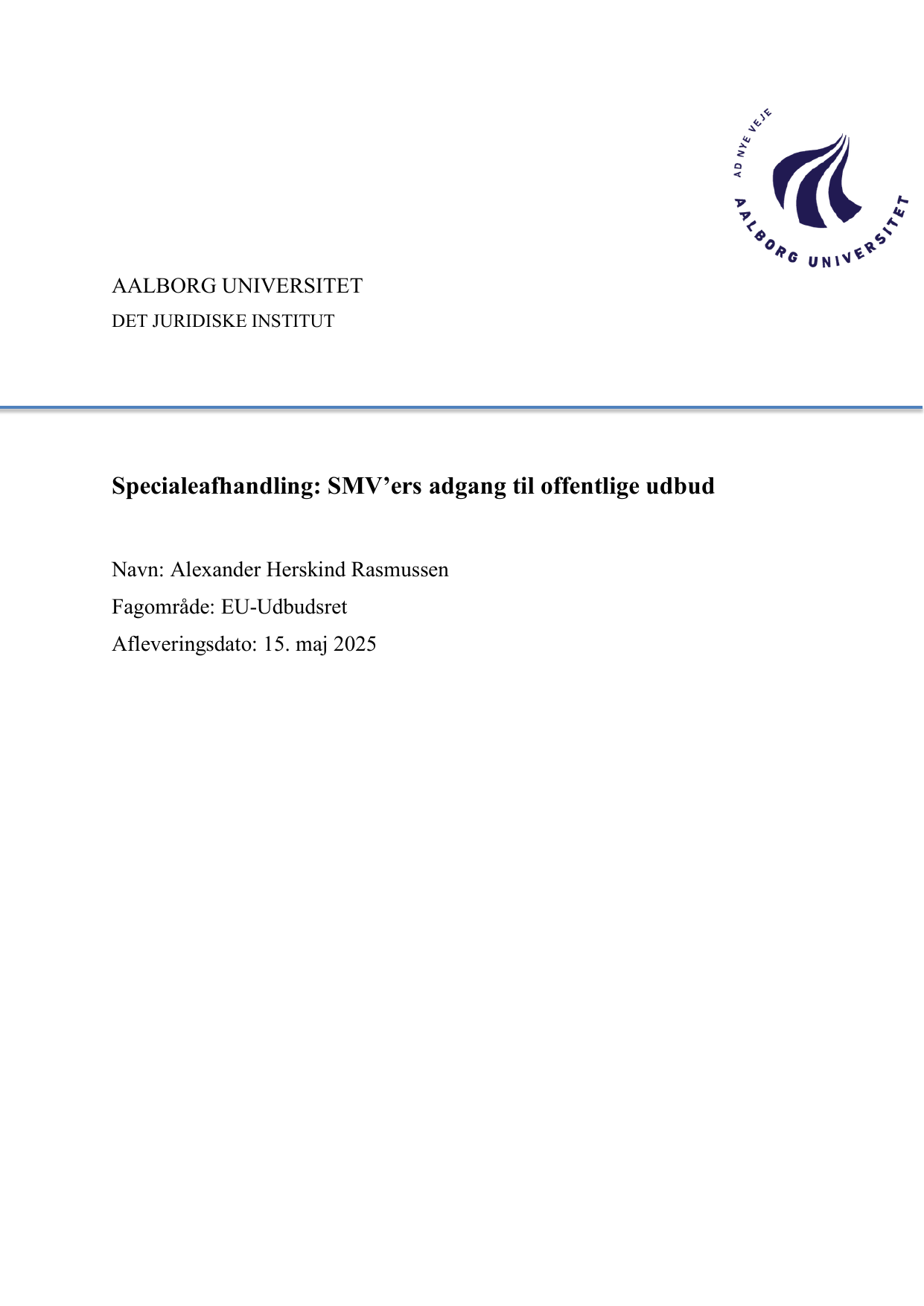
SMV'ers adgang til offentlige udbud
Oversat titel
The access of SMEs to the public procurement process
Forfatter
Semester
4. semester
Uddannelse
Udgivelsesår
2025
Afleveret
2025-05-14
Antal sider
54
Abstract
This thesis examines small and medium-sized enterprises’ (SMEs) participation in Denmark’s public procurement, analysing how the Danish Public Procurement Act and the EU Public Procurement Directive shape their market access. Through a legal-dogmatic lens the paper will explore opportunities, barriers and possible ways to reform the market in an attempt to foster a more inclusive procurement market guided by the principles set forth by the EU of equal treatment, transparency, and proportionality. To answer the research question a legal-dogmatic approach is used, drawing on the Public Procurement Act, the EU Directive, and the EU Court of Justice and Danish Complaints Board. The paper excludes related frameworks like the Utilities Directive, to focus on general procurement rules. This foundation leads to exploring the objectives and principles of public procurement law. Next the thesis will assess the mechanisms supporting SMEs. The formation of consortiums allows SMEs to pool resources for larger contracts while the “divide or explain” principle encourages public contracting authorities to split contracts into smaller lots to allow for more competition. Case law highlights the principles application even though inconsistent use often limits its effectiveness. Despite the tools that exist to help bring more SMEs into the public procurement process, barriers persist. Direct awards of contracts for low-value contracts favour more established firms and reduces transparency. In-house arrangements bypass competitive tendering thus limiting the opportunities for SMEs. EU case law like Teckal and Stadt Köln sets strict in- house conditions but their continued frequent use act as a hinderance of the competition. Complex tender requirements further challenge SMEs who often have less resources that they can put to use on the procurement process. To address these issues, reforms are proposed. Enforcing contract division through market consultations and templates could curb bundling. Simplifying processes and offering guidance would ease administrative burdens. Limiting in-house arrangements and direct awards via transparency measures could open markets. Monitoring SME participation would inform policy. These reforms balance SME inclusion with authorities’ flexibility. The thesis concludes that the legal framework fails to ensure SMEs’ equal access. Barriers like direct awards and in-house rules restrict competition. Proposed reforms, aligned with EU goals, require political will to create a fair, SME-friendly market.
Emneord
SMV ; Udbud ; Offentligt Udbud
